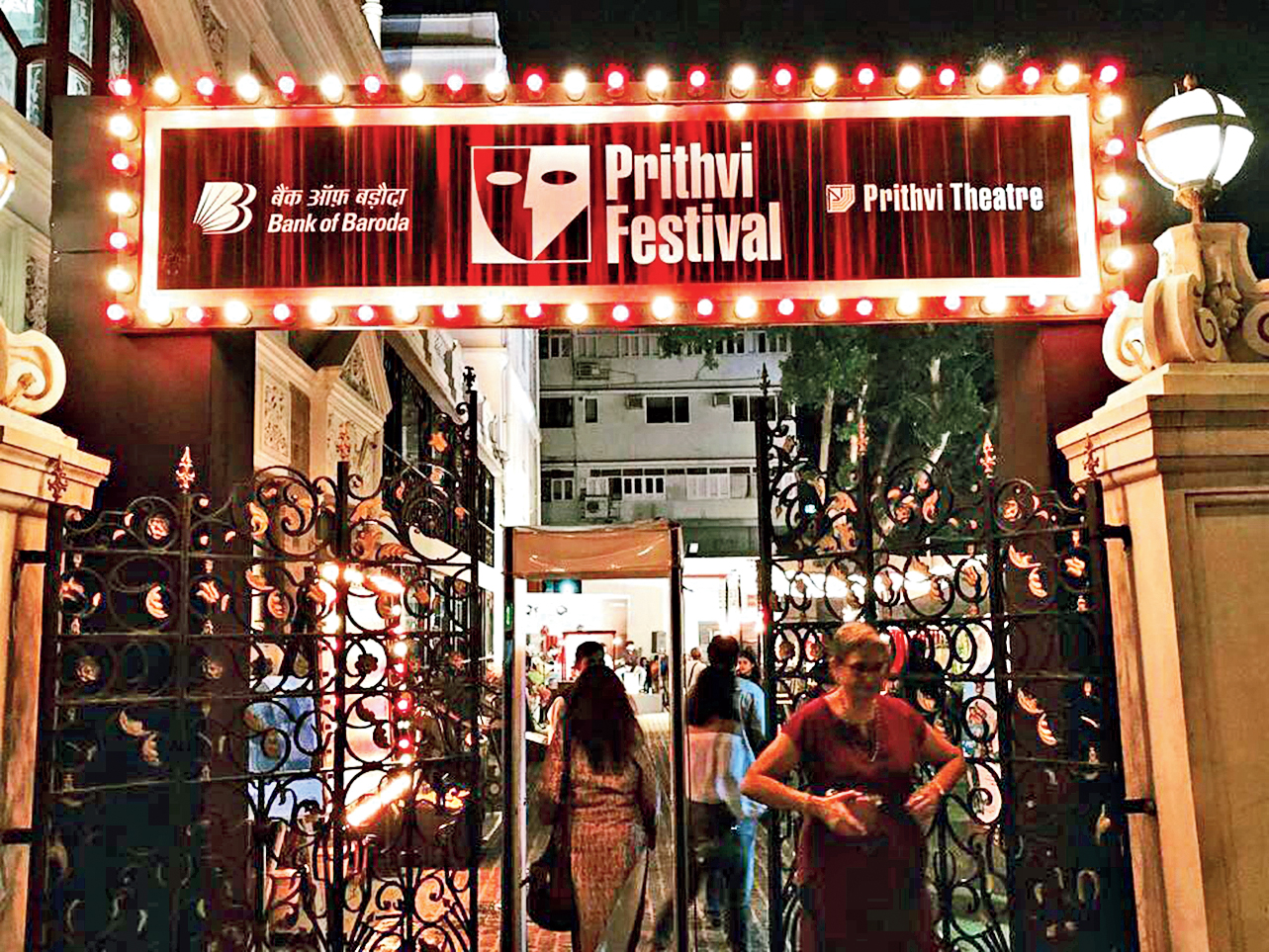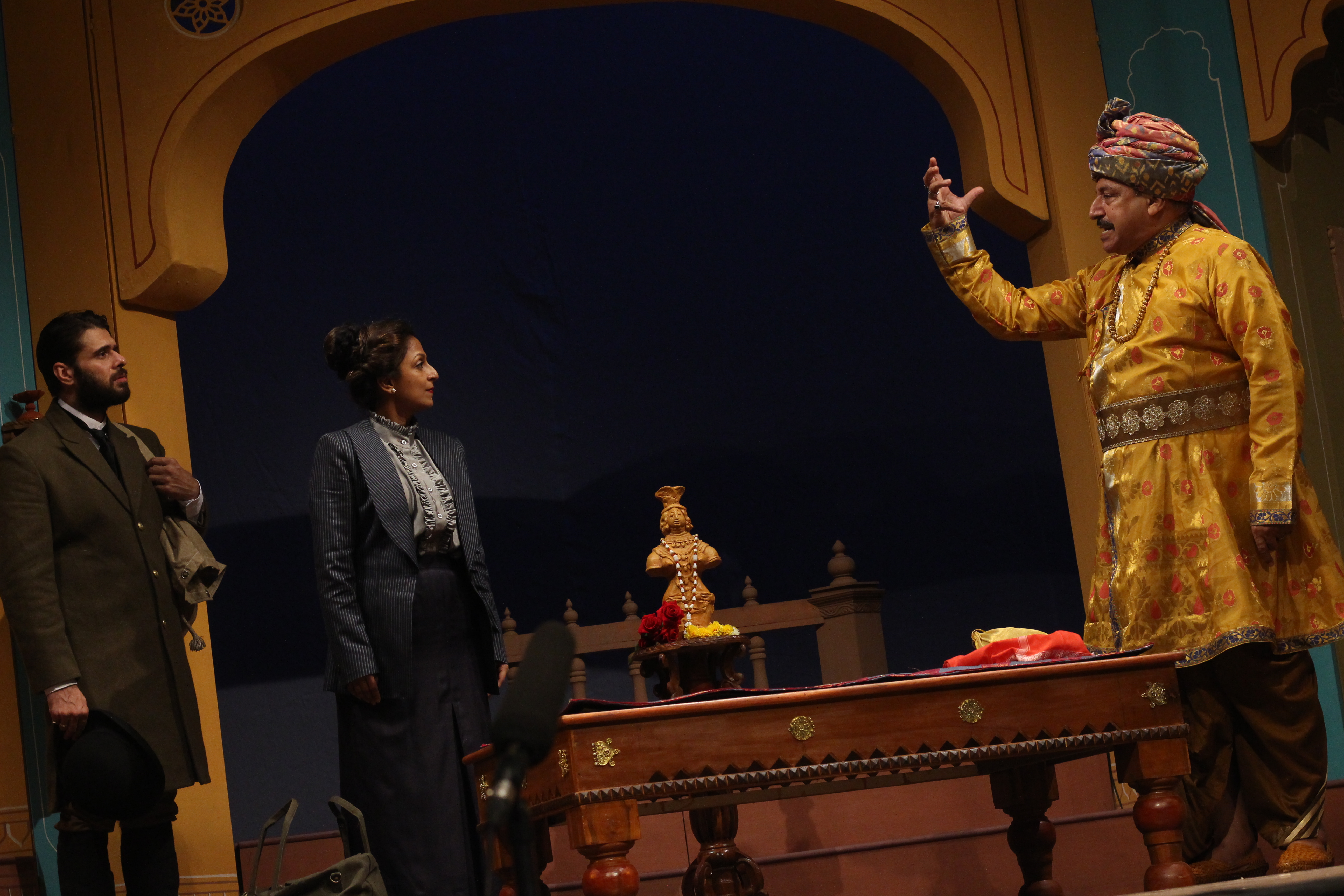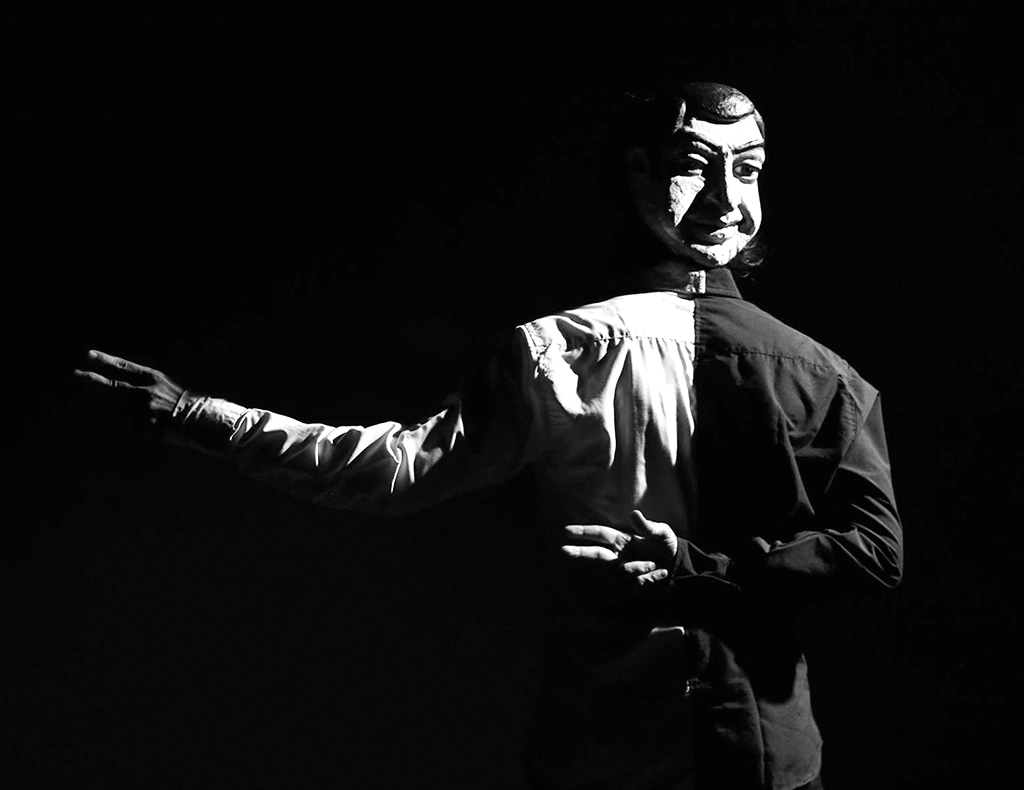
A scene from Mara Asatya Na Prayogo Source: Facebook page of Prithvi Theatre
A love that was born in Peshawar during his college days, but bloomed professionally first in Calcutta when Prithviraj joined James Grant Anderson’s touring company in 1932. Its repertory included Shakespeare, Shaw and Indian classics in English, and the young Prithviraj got an opportunity to play a range of characters, including that of Shylock. When Anderson moved back to England, the actor joined B.N. Sircar’s New Theatres and acted in acclaimed films like Vidyapati. It was during this phase that Shashi was born, on March 18, 1938, in a two-storeyed building near Kalighat.
Later, the Kapoors re-located to Bombay, where Prithviraj’s impressive personality was quickly lapped up by Hindi cinema; but their connection with Calcutta continued, as Prithvi Theatres (launched in 1944) regularly performed plays there. It was at one such performance, at Empire Theatre, that 18-year-old Shashi spotted Jennifer who was there with her father’s troupe, Shakespearana Theatrical Company. The two fell passionately in love, not least because of their common interest in theatre, got married in Bombay, but spent the early days of their married life in Fairlawn Hotel, Calcutta.
It was out of this passion that Prithvi Theatre in Juhu, Bombay, was set up. Sadly, Prithviraj, Shashi and Jennifer are no more. But the children of the latter, Kunal and Sanjana, have kept its legacy vibrantly alive, taking turns to nurture it. So, for 40 years, Prithvi Theatre has given theatre lovers and practitioners a stage that showcases talent from across the country. And November 5 has become a very special date in their diary as it is the start of a weeklong festival (started in 1983) of intense theatre activity.
This year, with Kunal at the helm, the theatre celebrated its landmark birthday in an unusual manner. It had its opening play, Deewar, on November 3, at the 103-year-old Royal Opera House, where Prithviraj had first performed it, in 1945. A timely story about colonisation and divisive elements destroying the country, Deewar’s 2018 avatar was directed by Sangeet Natak Akademi Award-winning director Sunil Shanbag who compressed the original four-hour play into little less than two hours.
Prithvi Theatre, hub of innovative, exciting drama in Mumbai, completed 40 glorious years on November 5. The theatre was set up in memory of legendary actor Prithviraj Kapoor — who was born on November 3, 1906, in Peshawar — by Prithviraj’s son and daughter-in-law, Shashi and Jennifer Kapoor, on a plot of land in Juhu, opposite the cottage where the senior Kapoor lived.
The plot on which this labour of love was built is suffused with history as it was here that the props, costumes, lights, etc. of Prithviraj Kapoor’s travelling theatre company, Prithvi Theatres, used to be stored, and where the doyen of Hindustani theatre hoped, one day, to build a small theatre. “But dad passed away in 1972, before he could realise his dream,” narrated Shashi once to this writer. “So, Jennifer and I felt we should make his dream a reality. We set about doing so with the clear understanding that I would look after the financial aspect while Jennifer would be in charge of getting it constructed and running it.”
Working in tandem, the duo built a state-of-the-art auditorium that opened on November 5, 1978, with two one-act plays by Naseeruddin Shah and Om Puri. It was put up with the actor’s personal savings earned from films. No bank loan, no corporate funding. It was like history repeating itself because Prithviraj, too, financed his travelling theatre company with earnings from cinema. Though he was a towering figure on the silver screen, theatre was always his first love.
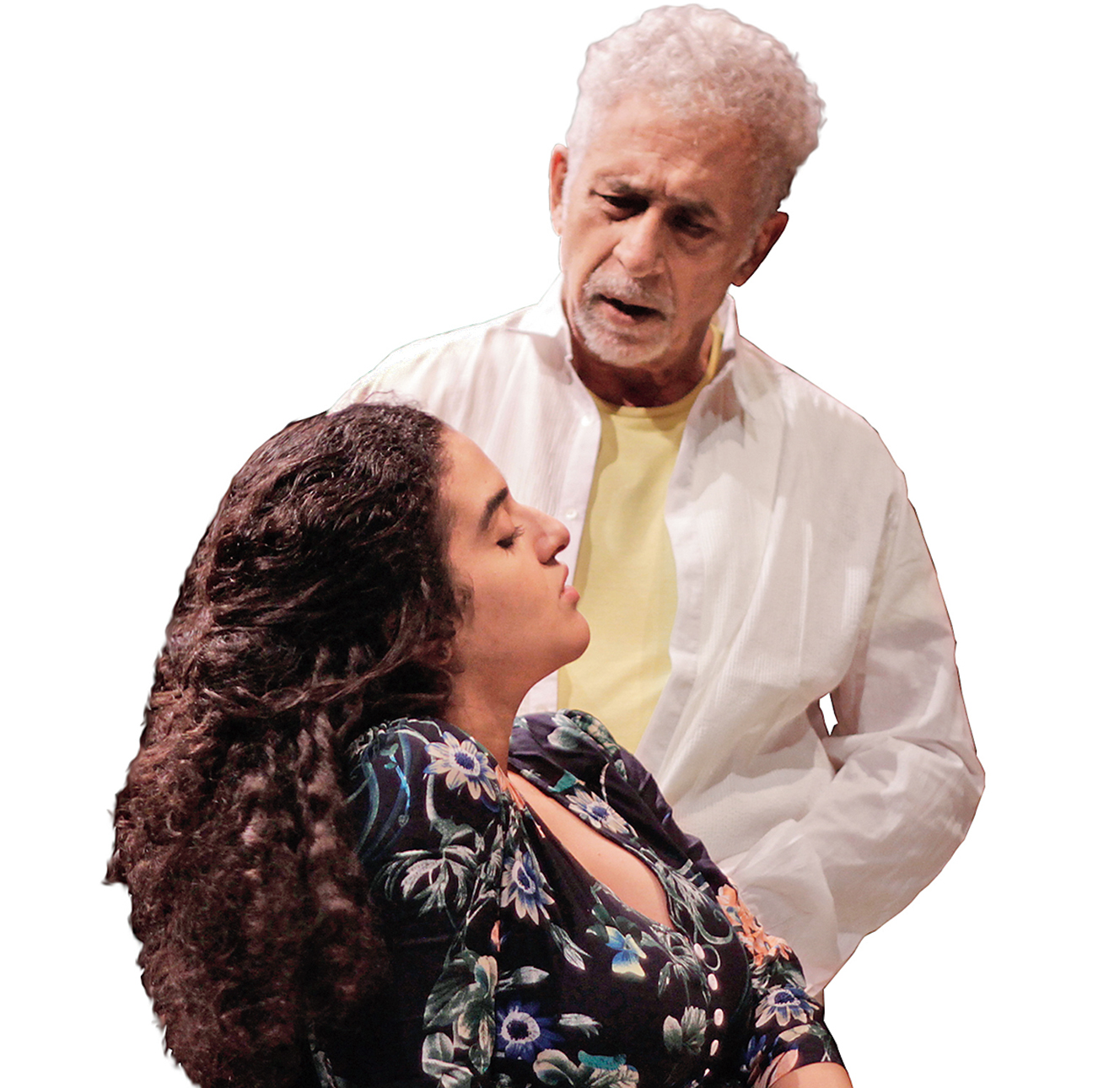
The Truth, by Naseeruddin Shah’s Motley group Source: Prithvi Theatre
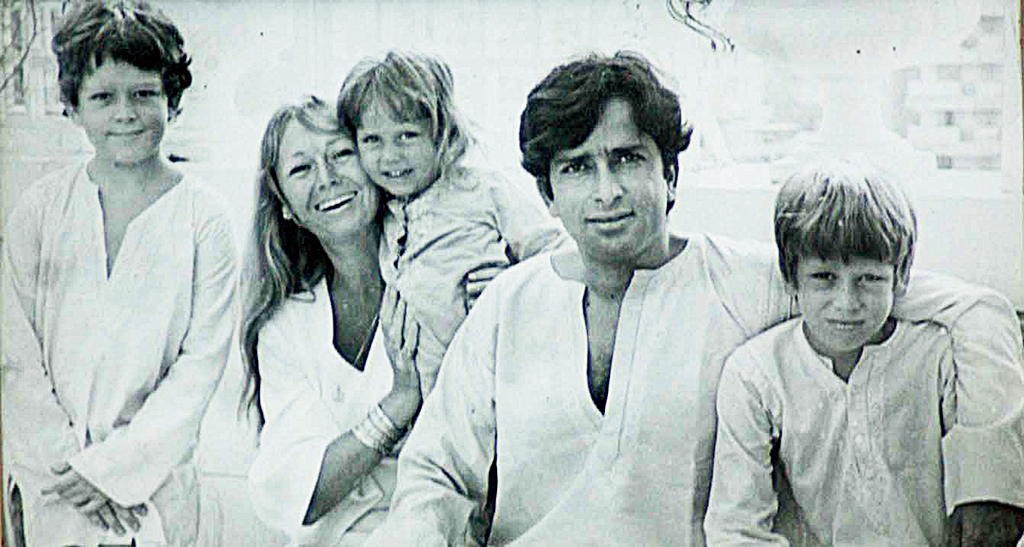
From the album of Shashi and Jennifer, who set up Prithvi Theatre in 1978 Source: Prithvi Theatre
Upping the nostalgia quotient were the walls of the venue that were clad in fascinating posters of Prithviraj’s plays and delightful write-ups about how he outwitted censors and politicking troublemakers to stage plays that focused on social issues of the time. With Neila Devi, the late Shammi Kapoor’s wife, and actor Ranbir Kapoor, the great grandson of Prithviraj, lighting the inaugural lamp, the evening was indeed a memorable one!
On November 5, another inaugural lamp was lit at Prithvi Theatre where Naseeruddin Shah’s Motley group staged The Truth, a breezy comedy about lies, lies and more lies. Again, there was an element of déjà vu as it was with a Motley production, Udhwastha Dharamshala, that Prithvi Theatre had, in 1978, started its amazing journey in the magical world of theatre.
The third play in this year’s festival, the Anahita Uberoi-directed Gaa Re Maa was a comedy too, with two musically-inclined mothers coping with sons who have to find their ikigai, a Japanese philosophy meaning “what you live for”. Written by Ishita Arun, Gaa Re Maa juxtaposes Hindustani classical music and Gospel singing with hip-hop, rap, beat-boxing in a spoofy, hilarious manner.
In a different genre altogether was The Sun Set In The East. Co-written by Avneesh Mishra and Ather Jaffery, this well-researched story of Bengal’s Hiralal Sen, the first Indian to import a bioscope, was staged in G5A, a black-box theatre in one of the old, now defunct textile mills of Bombay. Mishra, who directed the play, brought alive the Renaissance period of Bengali culture in a marvellous fashion in the small, intimate space of G5A. Tracing Hiralal’s life as a gold-medal-winning photographer and amateur filmmaker, Mishra weaves in the rich, cultural influences on Hiralal’s life. Rabindranath Tagore, Bankim Chandra Chattopadhyay, Amarendranath Dutt, Girish Ghosh, classical singers, Kathak dancers — Hiralal was smitten by all of them, much to the chagrin of his barrister father. The moving narrative of Hiralal’s desire to popularise cinema is punctuated with powerful songs by a live orchestra, nimble-toed kathak recitals and skits by two endearing clowns commenting on life’s deep aspects, in a comic-philosophical manner.
G5A saw other performances as well in English, Gujarati and Hindi. Several small plays in various languages were also staged at Prithvi House (built on the site called Prithvi Jhopda, the cottage that Prithviraj lived in), in keeping with Prithvi Theatre’s policy of celebrating diversity in theatre.
Adding to the vibrant ambience of drama were Stage Talks at Prithvi House where conversations were held with theatre stalwarts like Mohan Agashe, Sam Kerawala and Ramu Ramnathan. But the cancellation of the one with Ved Segan, the architect who designed Prithvi Theatre in conjunction with Shashi and Jennifer Kapoor, was a blot, small though it was, on the otherwise finely-tuned festival that ended with a grand musical show, Tango Tryst, by SOI Chamber Orchestra.
It was 10 days of unadulterated celebration of the performing arts thanks to the efforts of two individuals who gave back to the stage the tremendous love they had garnered from it: Jennifer and Shashi Kapoor.

